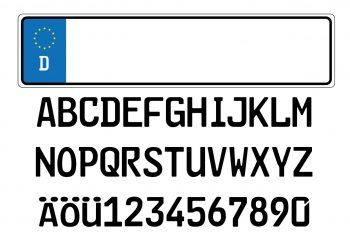Tag Archives: language learning
Accelerate Your Learning! German SMART Goals Posted by Constanze on Jan 24, 2022

Guten Tag! How are your New Year’s Resolutions (die Neujahrsvorsätze) going? Are they still going strong, or have you given up? If you have, fear not! Today’s post is all about a method that might just help you get back on track: die SMART-Formel! Learning SMART goals in German You may have heard of SMART…
What’s The Difference? Lehren And Unterrichten In German Posted by Constanze on Jul 22, 2020

Guten Tag! This is the second of three posts on the difference in some very closely linked words. These are German words that are either similar in meaning or similar in appearance (or both), which often means these words are used incorrectly. This post looks at the words lehren (to teach) and unterrichten (to teach)…
4 Ways German & English Are Similar Posted by Constanze on Oct 2, 2019

Guten Tag! Last time we looked at 4 ways German & English are different from one another. This time, I’m giving you four ways that German and English are similar to one another. Of course, there are many more things that could be said, so if you have any more ways that German and English…
The German Word Eselsbrücke (Mnemonic) Posted by Constanze on May 3, 2019

Guten Tag! Today we are going to look at the German word die Eselsbrücke, and what it means. Not only is it an interesting word, but an Eselsbrücke is something that might even help you with your language learning! Die Eselsbrücke literally translates to ‘the donkey bridge’. Its actual translation in English, however, is mnemonic…
The German Prefix ‘Ur’ Posted by Constanze on Apr 10, 2019

Guten Tag! Today we’re going to look at the German prefix ur. This is a very interesting prefix, because it is used only to talk about ‘original’, ‘primitive’, and ‘earliest’ things. Let’s get into it. The prefix ur is pronounced ooh-ah – exactly how you’d pronounce the German word for clock, die Uhr (but note…
Is The German Language Sexist? Posted by Constanze on Aug 29, 2018

German has three genders for its nouns: der (masculine), die (feminine) and das (neuter). A common point of confusion amongst German language learners is why each noun has its assigned gender – especially when there is no pattern to it and/or its gender doesn’t appear to make sense. For example, a table in German is…
7 Ways To Say Sorry In German Posted by Constanze on Aug 1, 2018

Entschuldiging, Verzeihung, Es tut mir Leid, Mein Beileid….. Have you ever noticed how many different ways there are to say ‘sorry’ in German? It might leave you wondering whether there’s any difference between them, and if it’s better to say one over the other. In this post I’m going to explain the different German words…


